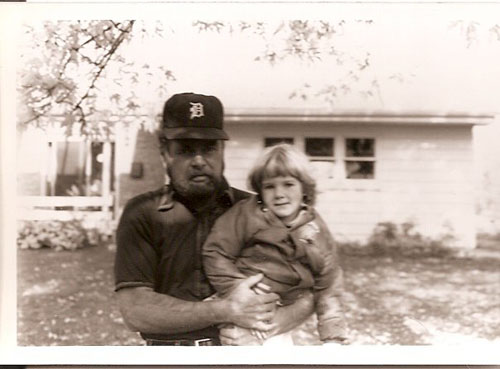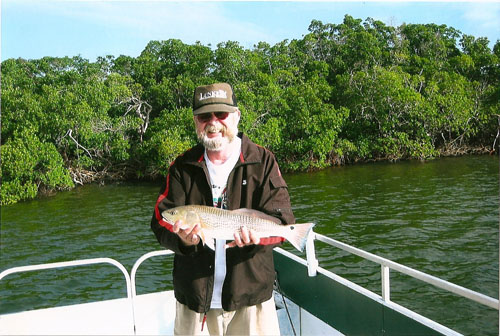The prevailing notion in our culture is that death is the end of a relationship: We must mourn and then dutifully accept the loss by saying goodbye. The absurdity of saying goodbye simply because an earthly life ceases is rarely questioned. Until my father died, I had no idea how strange and counterproductive the Western ethos on death truly is. Four years ago when he was diagnosed with pancreatic cancer, I received in education in the eternal.
My period of mourning was not neatly wrapped up into seven stages of grief. While grief was one aspect of dealing with my father's death, the experience was a much more multifaceted. At times it was as energizing and joyous as it was sorrowful. There is a unique elation after a loved one has passed that is rarely discussed, explored or embraced.
If energy cannot be created or destroyed, is it too far-fetched to imagine the living can absorb the transferred energy of the dead? My family slept in the hospice room where my father took his last breath. In the weeks after his death, I felt almost ecstatic, as though I was on an adrenaline bender. On the plane ride home from the hospice I randomly picked up a crossword from the in-flight magazine. In my 27 years, I'd never had the slightest interest in crossword puzzles, but my father faithfully did the Chicago Tribune crossword every Sunday. For months I entertained this arbitrary urge before it gradually faded. Is it possible that some of my father's extraordinary being had mingled with mine, if only for a while?
More than just the celestial signs we seek solace in, death offers a profound internal experience. While I have physically lost of my father, I am emotionally closer to him. Just as my relationship with my friends and family exists though I live 7,000 miles away, true emotional bonds extend past the boundaries of time or space. After my father died, I thought about him every day, talked about him incessantly, and relived memories to the point that I had formed a new, intangible relationship, one that was not contingent upon creating more external experiences, but instead opening up to a new, internal one.
In a recent moment of spiritual anxiety, I read The Power of Now. One hundred pages into the book, I could no longer buy into Eckhart Tolle's unrealistic philosophy on life. Tolle suggests that too often we reside in the past or future, and must always live in the present. While I agree that philosophies of "living in the moment" are part of a holistic experience, the past and the future are places that define our existence with an equal measure. Now that my material relationship with my father is cemented in place, hashing through memories in the context of a divine relationship is an incredible journey. There is still opportunity for discovery, time to understand my regrets, and most important, I can still laugh at his jokes.
Death not only offers you a new relationship, but the chance for you to immerse yourself in this relationship. People are so busy with careers, dating, and financial concerns, that those closest to us are pushed into the periphery of our thoughts. Death refocuses our priorities and temporarily makes our loved ones paramount. Death is a chance to make meaningful connections with our family and ourselves, to relish in what we so often neglect, even if it is painful.

However, when it comes to the pain of loss, more upsetting than feeling distraught is when the feeling of distress becomes less intense. Even in the depth of my sorrow I knew that "getting over" my father's death would be the worst part of his dying. There is nothing happy about "moving on" from the loss of a loved one. Though it can be agonizing, thinking about someone every day is the cold comfort that lets you know his or her presence will always be with you. When it feels like that presence is gone, it can be heartbreaking.
The presence of my father is not as strong as it was in the months after he passed, but I make sure to keep him close. When I was growing up I'd sit quietly on the couch next to him and file my nails for hours while he watched NCAA football. We wouldn't say anything, just sit together. Strangely, when he passed, I found these to be my fondest memories. Those ordinary, peaceful moments defined our intimacy, and like to recall them as often as I can.
When people die, they are frozen in time. It is never more apparent then with beautiful icons like James Dean or Marilyn Monroe, or musicians at the height of their talent like Morrison or Hendrix. We never have to see them decay or age, sell out or disappoint. It was hard to understand why my father only got 66 years and someone else gets 80. While I would have loved five more years with him, I love that the father I will continue to know and grow with for the rest of my natural life, will look very much as he did the day he drifted away into the unknown. Still vital, some salt in pepper in his auburn beard, and with all of his wits and dry humor about him.

For more by Anne Peterson, click here.
For more on death and dying, click here.